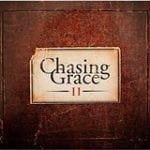Lost Record of the Week: Corb Lund, Horse Soldier! Horse Soldier!
This album nearly killed me. Not in a bad way…it’s just been so long since something grabbed my attention right away, wouldn’t let me go, and was brilliant from start to finish. Horse Soldier! Horse Soldier! is a true work of art in an age when the art of the album is vanishing. I almost cried when I first put it on; I was entirely captivated by Lund’s songwriting in both the humorous and tragic songs.
The album is basically about 1) war and 2) horses. One might think that limited subject matter makes for either a dull collection of songs or a narrowly conceived concept album with a niche audience. Not the case at all. It opens with Lund’s first rendition of “I Wanna Be in the Calvary,” a song that starts with snappy snare drums and a rolling banjo lick. Lund sings of the inevitable heroic status that his soldier character believes will be bestowed on him as he heads off to war, a sentiment that is echoed by the chorus of fiddles and full drum set as the song progresses. I believed it too and nearly step-danced along throughout the week whenever it came on. He then follows with the title track, a song that details the trials and tribulations of great war figures.
A more Lund-esque staple appears in track 3, “Lament for Lester Cousins,” a combination country two-step and waltz that tells the story of a regular guy’s cycle through hard labour, addiction, marriage, and violence.
Horses appear in several different capacities, and in several different tracks, but the running theme through them all is the emotional attachments Lund’s characters (or Lund himself) have for the horses. On “The Horse I Rode In On,” a rodeo rider reluctantly takes his turn, looking for his young lady in the crowd. He compares his longing for her to the horse’s efforts through the show, deciding that “The horse I rode in on felt none of my pain.” That same sentiment continues in “Especially a Paint”:
Whenever I see horses it reminds me of what I ain’t
‘Cause I am not your lover now and I may never be…
…Whenever I see horses I see a path I didn’t take
The horse and war theme converges in the penultimate song, “My Saddle Horse Has Died,” a sorrowful piece on (not surprisingly) the loss of a soldier’s horse. This is a beautiful song, with sharp mariachi trumpets augmenting the grief of the lyrics.
Perhaps the most harrowing moment on the album is “Student Visas,” an oddly titled song that gets more excruciating with each listen. It details an individual’s participation in the Nicaraguan Civil War in the 80s, wherein the US apparently authorized clandestine, anti-communist assistance for rebel groups. Graphic lyrics, meticulously arranged strings, a perfectly timed key change to accompany the rising tension aside, what gets me about this song is the everyday language Lund employs:
They said we was fightin’ communists but it was kinda hard to tell
There ain’t no fun in killin’ folk and I don’t wanna do it no more
I always explain Jimmie Rodgers’s success in the 1920s to my students as a function of his multiple identities: he could be the bluesy singing brakeman, the everyday pop performer with the bowtie, the first singing cowboy. Of course people liked him—he adopted those identities with ease and had something to offer everyone in the audience. Lund is a modern-day Rodgers: he is equally rancher, rodeo rider, farm boy, soldier, labourer, sophisticated left-wing urbanite. His stories and lyrics offer something to everyone regardless of background.
That said, sometimes it helps to be Albertan when you’re listening to him. The execs at Stony Plain (or Lund himself) were smart enough not to follow the seriousness of “Student Visas” with the silliness of “Family Reunion.” I was unfortunately standing at the bus stop when this foot-stompin,’ backwoods song came on and I heard these lyrics:
There’s a whole lotta cousins that I ain’t met yet
So you can imagine the shock I get
There’s one of them I think I mighta dated back in high school
But that’s alright, in Alberta that’s cool
at which I burst out laughing.
*Note: it’s probably only okay to laugh at that if you’re actually from Alberta.*
The reprise of “I Wanna Be in the Cavalry” is the final effort from the wrecked soldier, no longer triumphantly heading off to war, and beyond the trauma and anger. Lund’s weary voice is accompanied by acoustic guitar, mandolin, and accordion this time and the song plods along at a much slower tempo. The final lyrics,
We were finally forced to feed on horse and carcass we could scrounge
When the wagons stopped and we’d burnt their crops to charred and barren ground
With morale in doubt and our pride run out no honour did I see
All I seen were a thousand dreams piled dead in front of me
I wanna be in the cavalry if they send me off to war
I wanna be in the cavalry but I won’t ride home no more
Are followed by a rendition of Taps, and so the album ends on a sombre note.
I really don’t know why I didn’t listen to this before, but I can say for sure that this album has had a profound effect on me. I don’t know if I can articulate exactly what that is yet.



